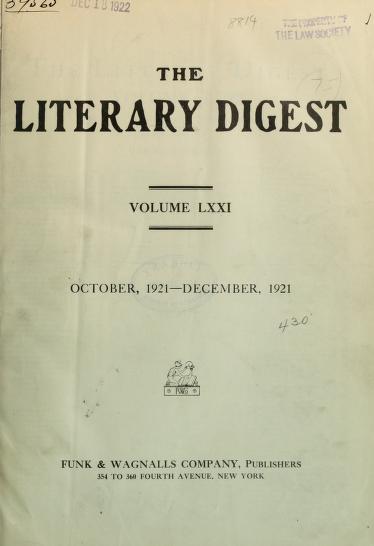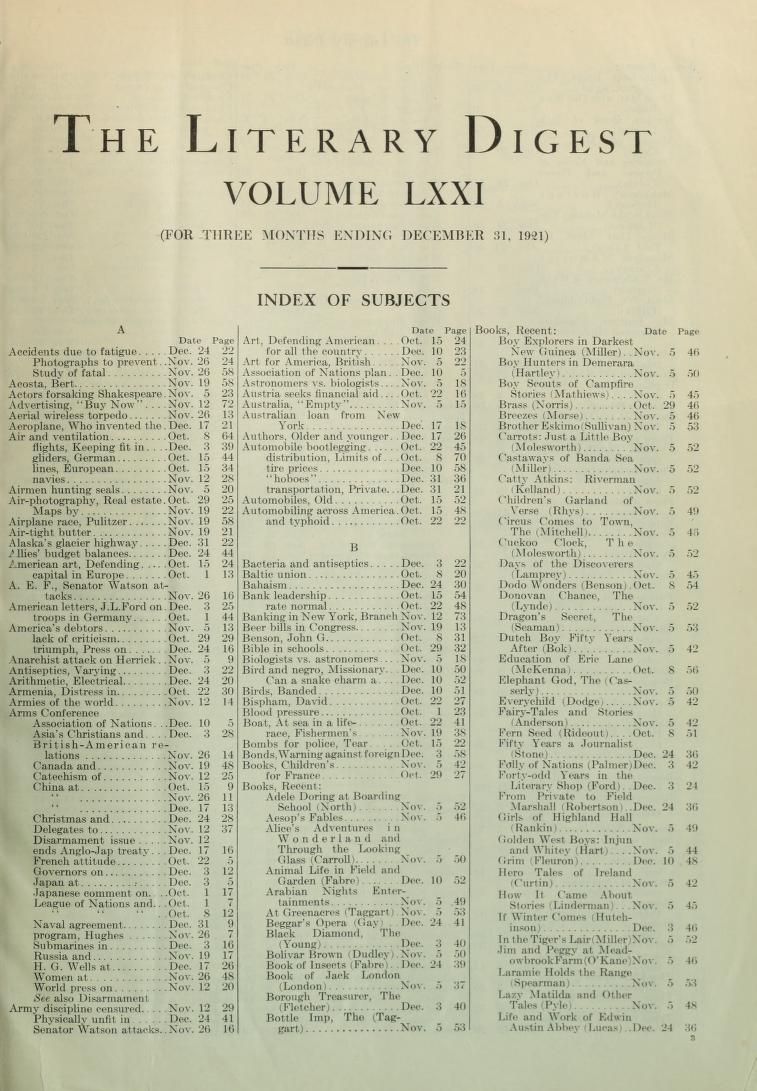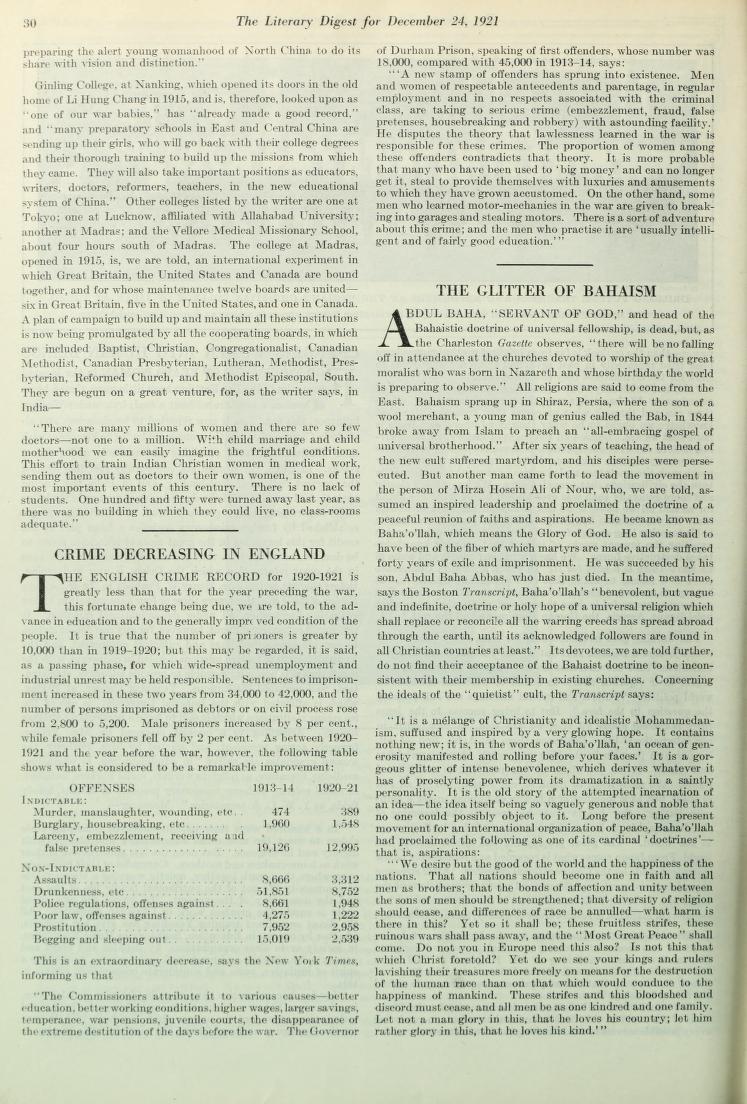
|
|
Abstract: Half-page overview of Bahá'í history and teachings, written shortly after the passing of Abdu'l-Bahá. No author given. Notes: This document is online in a variety of formats at archive.org. |
The Glitter of Bahá'ísm
published in Literary Digest, 71:13, page 30New York: 1921-12-24
1. Text
ABDUL BAHA, 'SERVANT OF GOD," and head of the Bahaistic doctrine of universal fellowship, is dead, but, as the Charleston Gazette observes, "there will be no falling off in attendance at the churches devoted to worship of the great moralist who was born in Nazareth and whose birthday the world is preparing to observe." All religions are said to come from the East. Bahaism sprang up in Shiraz, Persia, where the son of a wool merchant, a young man of genius called the Bab, in 1844 broke away from Islam to preach an "all-embracing gospel of universal brotherhood." After six years of teaching, the head of the new cult suffered martyrdom, and his disciples were persecuted. But another man came forth to lead the movement in the person of Mirza Hosein Ali of Nour, who, we are told, assumed an inspired leadership and proclaimed the doctrine of a peaceful reunion of faiths and aspirations. He became known as Baha'o'llah, which means the Glory of God. He also is said to have been of the fiber of which martyrs are made, and he suffered forty years of exile and imprisonment. He was succeeded by his son, Abdul Baha Abbas, who has just died. In the meantime, says the Boston Transcript, Baha'o'llah's "benevolent, but vague and indefinite, doctrine or holy hope of a universal religion which shall replace or reconcile all the warring creeds has spread abroad through the earth, until its acknowledged followers are found in all Christian countries at least." Its devotees, we are told further, do not find their acceptance of the Bahaist doctrine to be inconsistent with their membership in existing churches. Concerning the ideals of the "quietist" cult, the Transcript says:It is a melange of Christianity and idealistic Mohammedanism, suffused and inspired by a very glowing hope. It contains nothing new; it is, in the words of Baha'o'llah, 'an ocean of generosity manifested and rolling before your faces.' It is a gorgeous glitter of intense benevolence, which derives whatever it has of proselyting power from its dramatization in a saintly personality. It is the old story of the attempted incarnation of an idea — the idea itself being so vaguely generous and noble that no one could possibly object to it. Long before the present movement for an international organization of peace, Baha'o'llah had proclaimed the following as one of its cardinal 'doctrines' — that is, aspirations:"We desire but the good of the world and the happiness of the nations. That all nations should become one in faith and all men as brothers; that the bonds of affection and unity between the sons of men should be strengthened; that diversity of religion should cease, and differences of race be annulled — what harm is there in this? Yet so it shall be: these fruitless strifes, these ruinous wars shall pass away, and the "Most Great Peace" shall come. Do not you in Europe need this also? Is not this that which Christ foretold? Yet do we see your kings and rulers lavishing their treasures more freely on means for the destruction of the human race, than on that which would conduce to the happiness of mankind. These strifes and this bloodshed and discord must cease, and all men lie as one kindred and one family. Let not a man glory in this, that, he loves his country; let him rather glory in this, that he loves his kind."
2. Page scans



|
|